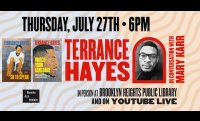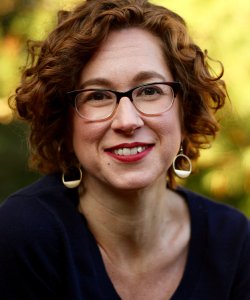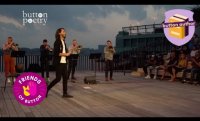Autumn begins with a bevy of contests for writers in all genres, including nineteen with a deadline of September 30. Half a dozen awards offer $5,000 or more and publication for full-length manuscripts of poetry, fiction, and nonfiction, and three have no entry fee. A prize of $15,000 is being offered for a book of fiction published during the current year; several prizes of $1,000 or more are offered for a single essay, story, or poem; and that’s not all! Good luck as you decide where to send your work!
Boulevard
Nonfiction Contest for Emerging Writers
A prize of $1,000 and publication in Boulevard is given annually for an essay by a writer who has not published a full-length book in any genre with a nationally distributed press. The editors will judge. Entry fee: $18.
California State University in Fresno
Philip Levine Prize for Poetry
A prize of $2,000, publication by Anhinga Press, and 25 author copies is given annually for a poetry collection. The winner will also be invited to give a public reading at California State University in Fresno. Douglas Kearney will judge. Entry fee: $25.
Connecticut Poetry Society
Vivian Shipley Poetry Award
A prize of $1,000 and publication in Connecticut River Review and on the Connecticut Poetry Society website is given annually for a single poem. Antoinette Brim-Bell will judge. Entry fee: $15.
Dzanc Books
Short Story Collection Prize
A prize of $2,500 and publication by Dzanc Books is given annually for a story collection. The editors will judge. Entry fee: $25.
Dzanc Books
Prize for Fiction
A prize of $5,000 and publication by Dzanc Books is given annually for a novel. Mark Dunn, Alan Grostephan, and Julie Ann Stewart will judge. Entry fee: $25.
Ghost Story
Supernatural Fiction Award
A prize of $1,500 and publication on the Ghost Story website is given twice yearly for a short story with a supernatural or magic realist theme. The winning work will also be published in Volume III of the 21st Century Ghost Stories print anthology. The editors will judge. Entry fee: $20.
Hackney Literary Awards
Novel Contest
A prize of $5,000 is given annually for an unpublished novel. Entry fee: $30.
Lascaux Review
Prize in Creative Nonfiction
A prize of $1,000 is given annually for an essay. The winner and finalists will also be published on the Lascaux Review website. Previously published and unpublished essays are eligible. Entry fee: $15.
One Page
Poetry Contest
A prize of $2,000 will be given annually for a single poem. A second-place prize of $1,000 will also be given. Mark Graham, Monique Jonath, and Ann Tinkham will judge. Entry fee: $25.
PEN/Faulkner Foundation
Award for Fiction
A prize of $15,000 is given annually for a book of fiction published during the current year. Four finalists each receive $5,000. The winner and finalists will also be invited to read in Washington, D.C., in May 2024. Entry fee: $75.
The Moth
Nature Writing Prize
A prize of €1,000 (approximately $1,092) and online publication in Irish Times is given annually for a poem, a story, or an essay that features “an exploration of the writer’s relationship with the natural world.” The winner also receives a weeklong stay at the Circle of Misse artist’s retreat in Missé, France. Kathleen Jamie will judge. Entry fee: $16.
Texas Review Press: The University Press of SHSU
George Garrett Fiction Prize
A prize of $1,000, publication by Texas Review Press: The University Press of SHSU, and 20 author copies is given annually for a short story collection or novel. Entry fee: $28.
Texas Review Press: The University Press of SHSU
X. J. Kennedy Poetry Prize
A prize of $10,000, publication by Texas Review Press: The University Press of SHSU, and 10 author copies is given annually for a poetry collection. Richard Blanco will judge. Entry fee: $28.
University of Arkansas Press
Miller Williams Poetry Prize
A prize of $5,000 and publication by University of Arkansas Press is given annually for a poetry collection. Patricia Smith will judge. Entry fee: $28.
University of Iowa Press
Iowa Short Fiction Award
Two prizes of publication by the University of Iowa Press are given annually for first collections of short fiction. Entry fee: None.
University of Mississippi
Willie Morris Award for Southern Nonfiction
A prize of $12,000 is given annually for a book of nonfiction published during the current year that asks readers “to engage with or reflect on the complexities of the American South.” The winner will also receive an all-expenses-paid trip to Oxford, Mississippi, for the awards ceremony in April 2024. Entry fee: None.
University of Mississippi
Willie Morris Award for Southern Fiction
A prize of $12,000 is given annually for a novel published during the current year that asks readers “to engage with or reflect on the complexities of the American South.” The winner will also receive an all-expenses-paid trip to Oxford, Mississippi, for the awards ceremony in April 2024. Entry fee: None.
University of Mississippi
Willie Morris Award for Southern Poetry
A prize of $3,000 is given annually for a single poem that evokes the American South. The winner will also receive an all-expenses-paid trip to Oxford, Mississippi, for the awards ceremony in April 2024. Susan Kinsolving will judge. Entry fee: None.
Winning Writers
Tom Howard/Margaret Reid Poetry Contest
Two prizes of $3,000 each, two-year gift certificates for membership to the literary database Duotrope, and publication on the Winning Writers website are given annually for a poem in any style and a poem that either rhymes or is written in a traditional style. Briana Grogan, Michal “MJ” Jones, and Dare Williams will judge. Entry fee: $22.
Visit the contest websites for complete guidelines, and check out the Grants & Awards database and Submission Calendar for more contests in poetry, fiction, creative nonfiction, and translation.











